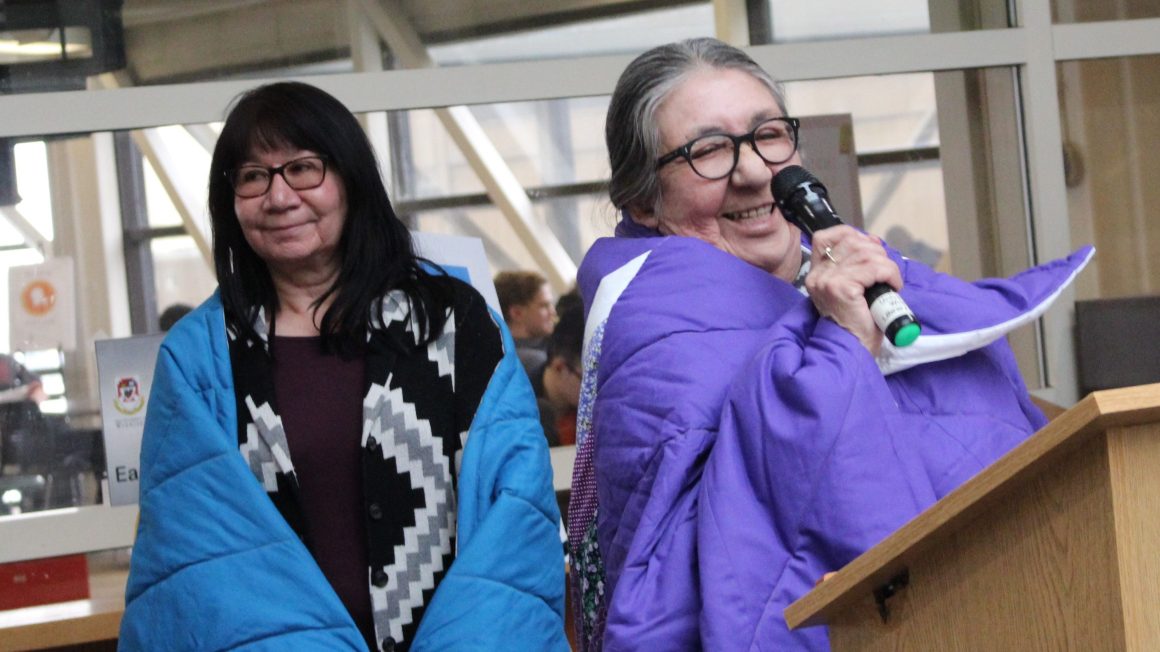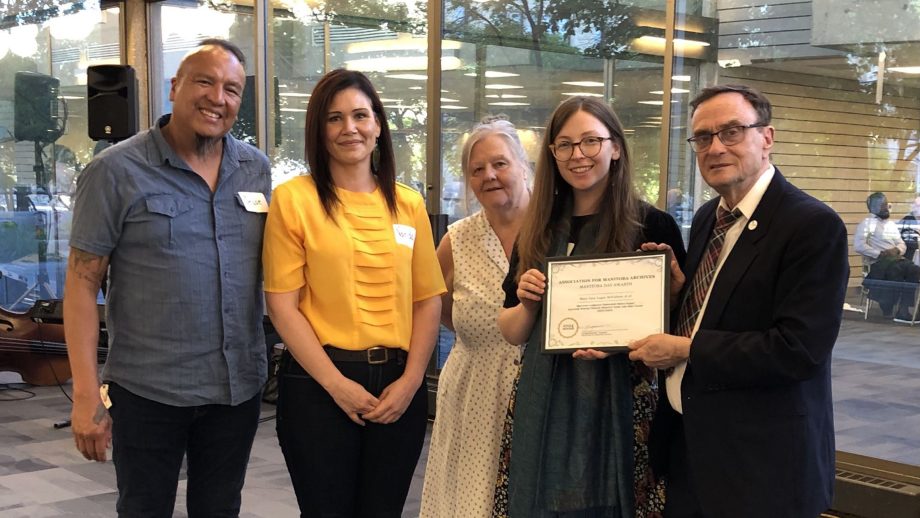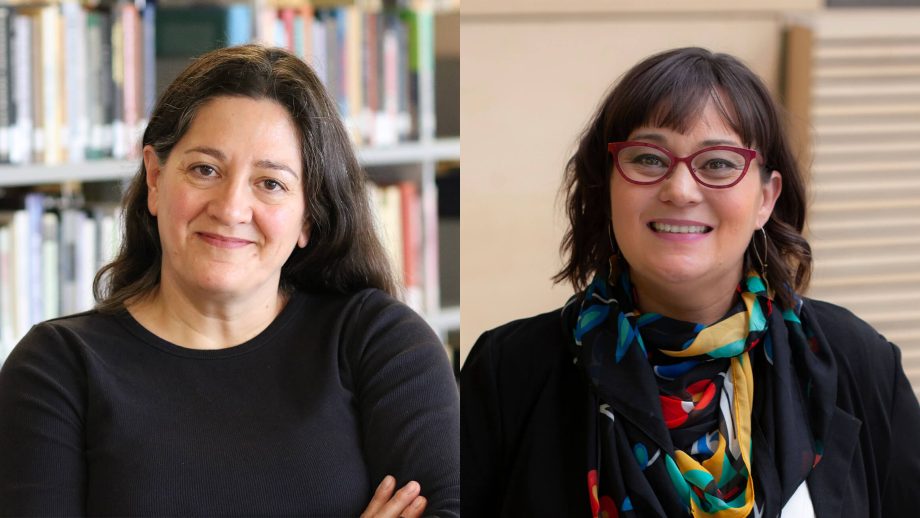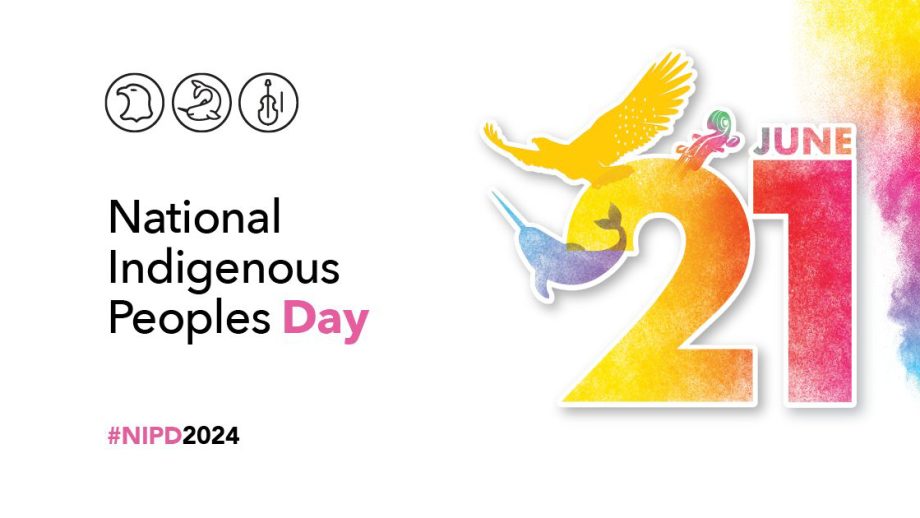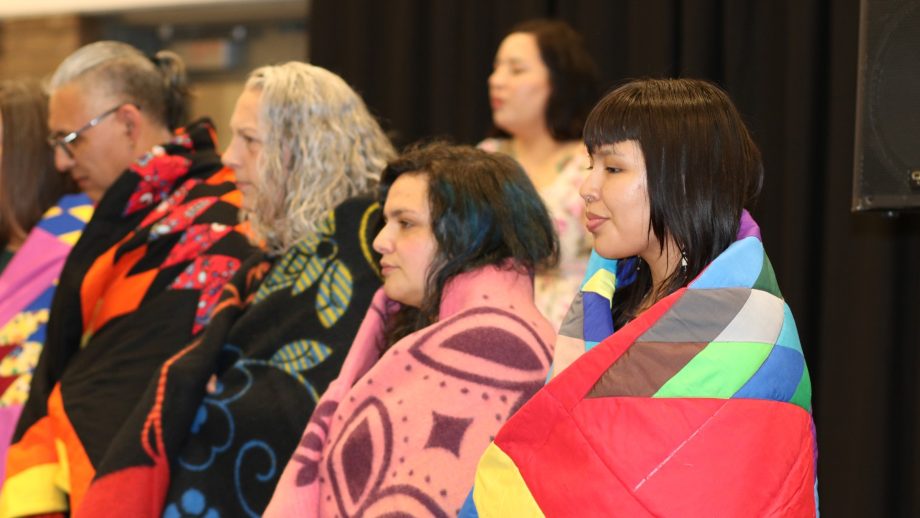Students will soon be able to work toward a Bachelor of Arts in Indigenous Languages thanks to a new thematic major launching at The University of Winnipeg this fall.
The program is the first of its kind in Manitoba and will provide students with the tools and knowledge to communicate, research, and advocate for Indigenous languages, such as Cree and Ojibwe.
It has been a community effort that really started from the ground up and we want to continue to be flexible to the community’s learning needs.
Dr. lorena fontaine
Cameron Adams is thrilled this degree path has been created. He is registering in the Indigenous Language program as part of UWinnipeg’s Integrated Bachelor of Education and Bachelor of Arts.
From the time he first stepped foot on campus, he took every Cree language course offered. When higher level courses were not available, he went searching for Elders and language teachers to teach him their language with hopes that one day he might be able to teach it himself.
Indigenous Academic Lead Dr. Lorena Fontaine has met many students like Adams. Morgan Brightnose, Sadie-Phoenix Lavoie, and Kevin Settee were also strong advocates for the creation of an Indigenous language program when they were students.
Fontaine is leading the development of the Indigenous language major, along with Dr. Shelley Tulloch, Chair of the Department of Anthropology.
They are thankful for the university-wide support they’ve received to bring this program to life. Ramona Hallett has coordinated many of the behind the scenes details. Dr. Doug Goltz, Dr. Glenn Moulaison, Dr. Jeannie Kerr, and Professor Darren Courchene have generously shared their expertise and time as members of the initial program development committee. Many language teachers and community members, such as Annie Boulanger and Ida Bear (who teach Ojibwe and Cree at UWinnipeg),continue to provide vital insights.
For students – like Adams – who have already taken language courses, they may be closer to this credential than they realize.
“I’m hoping to connect with the students that have already taken some language courses and work with them,” said Fontaine. “It’s a matter of saying, you’ve already done some of the course work and here is what you need to complete your degree.”

UWinnipeg’s Indigenous language program is guided by the needs of students, Elders and community members passionate about language revitalization. ©UWinnipeg
Building a career in language revitalization
The opportunities to turn a passion for language revitalization into a career are endless.
“There’s a huge need for more Indigenous language teachers as demand grows and current teachers retire,” said Tulloch. “We always hear that the reason why there aren’t more Indigenous language programs is the lack of trained teachers, so this program is geared to filling that gap.”
Fontaine tells students the needs are so diverse that they can carve their own career path depending on their interests.
“You could work in policy development or community development,” she said. “We need curriculum developers. We need more literature, more books, more radio shows…”
Speaking of radio shows, Fontaine played a crucial role in the development of Aakoziiwigamig: An Ojibwe Radio Drama, and she hopes to see more programs like it.
“We need more places to hear and practice the language,” she said. “I can see this being an important component to our language program and we could get students in the production in the future.”
To support students as they learn Indigenous languages, Dr. Robert Lewis, a member of the Citizen Potawatomi Nation whose research areas include discourse markers, language pedagogy, language revitalization, and morphological and syntactic theory, recently joined the Department of Anthropology.
“I see my job as providing future language teachers with linguistic tools to better understand and teach their languages,” he said.
Language program anchored in community
While developing the program, Fontaine connected often with community members, students, Elders, and language keepers to identify what was most important to them.
“The program is anchored in community,” said Tulloch. “It has been developed in response to students who wanted to learn Indigenous languages at the university level, and grassroots organizations like the Manitoba Aboriginal Languages Strategy program who Lorena has worked closely with.”
Through the Manitoba Aboriginal Languages Strategy program, Fontaine was able to connect with the Council of Grandparents, a group of language speakers and knowledge keepers who generously share their wisdom and guidance to support language revitalization in Manitoba.
The Elders provide Fontaine with vital insights into the importance of language revitalization.
“I heard this beautiful teaching by Elder Wanbdi Wakita a few weeks ago, how when we are teaching the language it’s not just words,” said Fontaine. “We are teaching people how to be good human beings. We are teaching culture and language, so it’s more holistic.”
An important aspect of program development has been meeting with language teachers to develop benchmarks for Indigenous language courses from beginner to intermediate to advanced. Fontaine feels very grateful to have such a dynamic, knowledgeable group of Elders to turn to for support because Indigenous language benchmarks are unique from region to region.
In addition to language courses, students will take linguistics, anthropology, Indigenous studies and other interdisciplinary courses that provide insight into the historical and cultural importance of language revitalization. There will be opportunities throughout the program to connect with and learn from Elders and knowledge keepers.
While the UWinnipeg program will begin with a focus on Cree and Ojibwe, there are already plans in the works to incorporate Michif and other languages.
The University of Winnipeg team is working with Dr. Cary Miller, Pat Ningewance Nadeau, Ken Paupanekis, and Heather Souter at the University of Manitoba, to share resources and provide more students with access to the limited pool of language teachers in Manitoba.
“It has been a community effort that really started from the ground up and we want to continue to be flexible to the community’s learning needs,” said Fontaine.
Fontaine recalls a recent conversation with a Cree speaker who works with elementary-aged children, who told her how much it meant to share this program with the Indigenous children she works with.
“It makes a statement that our languages our important enough to have a program,” said Fontaine. “Being able to tell those children, whose ancestral language is Cree, that there is a language program at The University of Winnipeg that they can go to one day is really empowering.”

